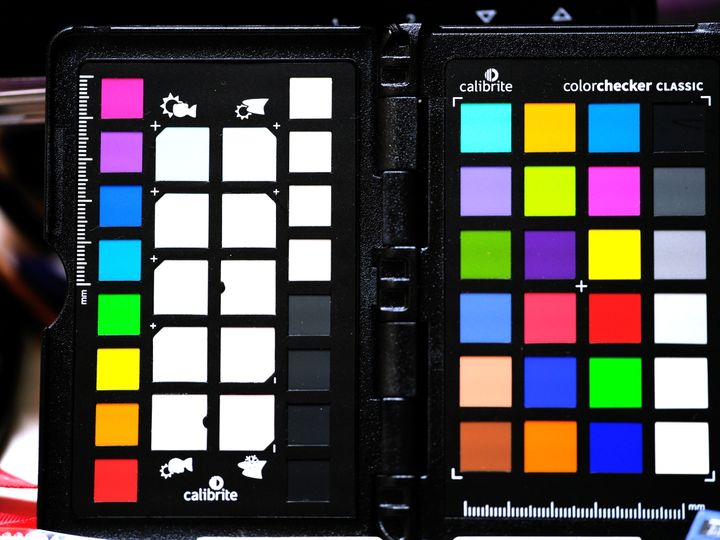QT 08/07/2025 Tue. Jeremiah 48 Pride is the enemy of faith. 骄傲是信心的敌人

QT 08/07/2025 Tue. Jeremiah 48 Pride is the enemy of faith.
READ http://www.esv.org/jer48
Key Verse:
"We have heard of the pride of Moab—he is very proud—of his loftiness, his pride, and his arrogance, and the haughtiness of his heart." — Jeremiah 48:29 (ESV)
Reflection:
Jeremiah 48 is a sobering chapter—one of judgment, lament, and divine reckoning. It focuses entirely on Moab, a neighbouring nation of Israel, known for its pride, wealth, and idolatry. The chapter reads like a funeral dirge, as the Lord declares judgment over Moab for its rebellion, pride, and false confidence.
Moab’s downfall is not merely political or military; it is deeply spiritual. The root of its collapse is revealed in verse 29: pride. The people of Moab trusted in their accomplishments, cities, and false gods. Verse 7 says, "Because you trusted in your works and your treasures, you also shall be taken." Trusting in anything other than the living God always leads to destruction.
Pride is the enemy of faith. It blinds us to our need for God and inflates our sense of independence. Just as Moab boasted in its strength and status, we too can fall into the trap of self-reliance. We may not build altars to Chemosh like Moab did (v.13), but we often build altars in our hearts to success, comfort, or control. These false gods cannot save.
Jeremiah’s lament in verse 31 shows God's heart, even in judgment: “Therefore I wail for Moab; I cry out for all Moab.” God does not delight in destruction. His judgments are righteous, but they are also filled with grief and calls to repentance. The Lord is not indifferent; He mourns the ruin of people who refuse to turn to Him.
Verse 42 says, “Moab shall be destroyed and be no longer a people, because he magnified himself against the Lord.” That phrase should pierce our hearts. To magnify oneself against the Lord is to place our will above His, to elevate our way above the cross. But the gospel reminds us of a better way.
Jesus Christ calls us to humility and repentance. “Blessed are the poor in spirit,” He said (Matt. 5:3). The broken and humble are the ones who find mercy. In a world that exalts pride, Christ invites us to bow low—to see our need for Him, to cast down our idols, and to place our full trust in His finished work on the cross.
Even in a chapter heavy with judgment, there is a hint of hope. The final verse (v.47) says, “Yet I will restore the fortunes of Moab in the latter days, declares the Lord.” God’s mercy reaches even into the ashes of judgment. Restoration is possible for all who repent and turn to Him.
Prayer:
Father, protect my heart from pride. Help me to see where I have trusted in my own strength or idols instead of You. Break down my arrogance and lead me to humble repentance. Thank You that through Jesus, there is mercy and restoration. In Jesus’ name. Amen.
QT 08/07/2025 星期二. 耶利米书 48 骄傲是信心的敌人
阅读 http://m.bbintl.org/bible/ncv/Jer/48/
关键经文
“我们听说摩押的骄傲,它非常骄傲;我们听到它的狂妄、骄傲、傲慢和心里的自高。- 耶利米书 48:29
反思:
《耶利米书》第 48 章是发人深省的一章,是关于审判、哀叹和神圣清算的一章。它的重点完全放在摩押,一个以骄傲、富有和拜偶像著称的以色列邻国。这一章读起来就像一首葬礼哀歌,耶和华宣布对摩押的叛逆、骄傲和虚假自信进行审判。
摩押的衰落不仅仅是政治或军事上的,而是深刻的属灵、信仰上的。第 29 节揭示了其崩溃的根源:骄傲。摩押人相信他们的成就、城市和假神。第 7 节说:“你因为倚靠你的成就和财富,就必被攻取;基抹必被掳去,事奉它的祭司和领袖都必一同被掳去。”
骄傲是信心的敌人。它蒙蔽了我们对神的需要,并夸大了我们的独立意识。就像摩押夸耀自己的力量和地位一样,我们也会掉进自力更生的陷阱。我们也许不会像摩押那样(第13节)为凯摩司筑坛,但我们常常在心中为成功、舒适或控制筑坛。这些假神无法拯救我们。
耶利米在第 31 节中的哀叹表明了上帝的心意,即使是在审判中: "因此我要为摩押哀号,为全摩押喊叫,为吉珥.哈列设人唉哼。
第 42 节说,“摩押必被摧毁,不再成为一个民族,因为它向耶和华妄自尊大。”这句话应该刺痛我们的心。自高自大,反对耶和华,就是把自己的意志凌驾于耶和华之上,把自己的道路凌驾于十字架之上。但福音提醒我们有更好的方法。
耶稣基督呼召我们谦卑和悔改。他说:““心灵贫乏的人有福了,因为天国是他们的。”(马太福音 5:3)。破碎和谦卑的人才能得到怜悯。在这个高举傲慢的世界里,基督邀请我们低头--看清我们对祂的需要,丢弃我们的偶像,完全信赖祂在十字架上完成的工作。
即使在这充满审判的一章中,也有一丝希望。最后一节经文(第 47 节)说:“但日后,我必使被掳的摩押人归回。”这是耶和华的宣告。有关摩押的宣判到这里为止。”上帝的仁慈甚至伸向了审判的灰烬。所有悔改归向神的人都有可能恢复。
祈祷
天父,保护我的心远离骄傲。帮我看清我在哪些地方相信了自己的力量或偶像,而不是你。打破我的傲慢,引导我谦卑悔改。感谢你,通过耶稣,我得到了怜悯和恢复。奉耶稣的名。阿门。


